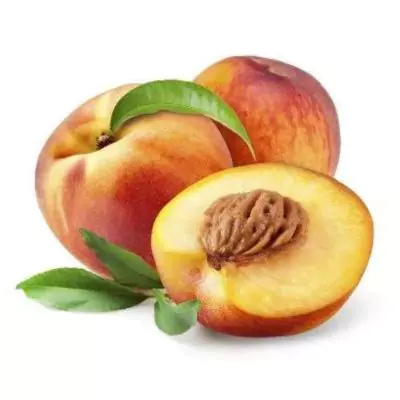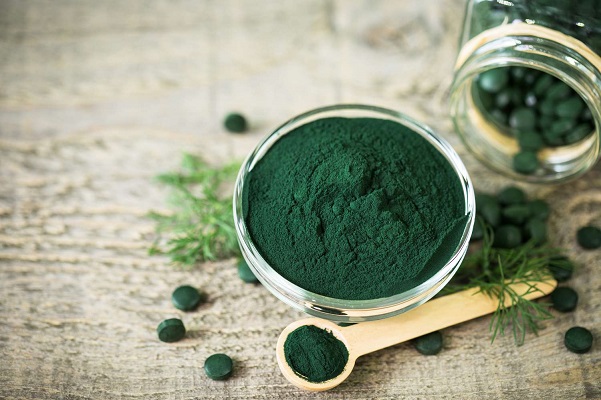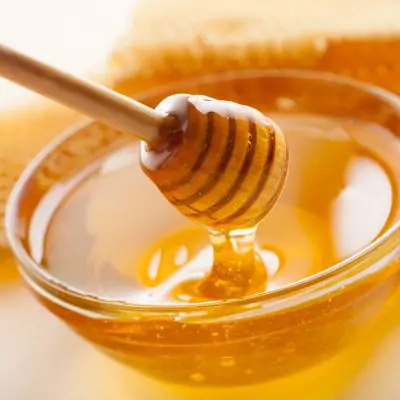On This Page
Overview
Scientifically known as Prunus persica and referred to as “Aadu,” peaches are soft, pulpy superfoods. The peach, or aadu fruit, is a prominent summer crop in India that grows during the hot season from early April to the end of June. It is rich in vital nutrients and offers amazing health advantages. Depending on the peach fruit kind, the flesh can be either white, yellow, or red. They have a chewable outer layer of fur. Peaches are also incredibly delicious, juicy, and packed with vitamins, minerals, and antioxidants.
Synonyms of Peach
- Alu
- Aadu
- Pandu
- Pica
- Prunus persica
Nutritional Facts of Peach
Nutritional value per 100 g
| Energy: | 39 kcal |
| Carbohydrates: | 9.54 g |
| Sugars: | 8.39 g |
| Dietary fiber: | 1.5 g |
| Fat: | 0.25 g |
| Protein: | 0.91 g |
Phytochemical Constituents of Peach
- Phenolic compounds
- Carotenoids
- Vitamins
- Volatiles and organic acids
Therapeutic Uses of Peach
- Peach Fruit for Improving Eyesight
Poor eyesight may be caused by a mineral and vitamin shortage in the body. Carotenoids, vitamin A, and beta carotenes are plenty in peach fruit. As a result, it aids in vision improvement. The eye cells that are in charge of perceiving images require carotenoids and beta carotenes to function.
- Cholesterol Management
Cholesterol is not present in peach fruit. Overall, it is a fruit that is highly healthful. In managing blood cholesterol rises, it is also highly helpful. Peaches are high in fiber, which assists in removing extra cholesterol from the arteries and lowers the chance of clogged arteries.
- Prevents Cancer
The antioxidants in aadu fruit’s polyphenolic class are particularly effective at preventing the development of cancer. These substances work by preventing dangerous free radicals from oxidizing the healthy cells in crucial body organs including the kidney, liver, and bones, endowing the system with beneficial cytoprotective properties. As a result, cancer is halted because healthy cells are kept from engaging in an unchecked proliferative mechanism.
- Promotes Digestion
Due to their abundance in natural dietary fibers, peaches aid in controlling appetite, lowering impulsive desires for junk food, and preventing obesity and diabetes. Additionally, they make it easier for processed and unprocessed food particles to flow through the digestive system, which lowers the risk of constipation. Aadu fruits also reduce the risk of intestinal diseases such as ulcerative colitis and inflammatory bowel disease.
- Strengthens Bones
Peaches strengthen the body’s connective tissues because they are naturally high in phosphorus, a trace mineral necessary for preserving bone structure and rigidity. Regular peach consumption also helps to ward off serious bone diseases like osteoporosis and arthritis. Additionally, phosphorus regulates calcium absorption in tooth tissues, strengthening jawbones and gums in the process.
Home Remedies Peach
- Wound Healer
The minerals and vitamins maintain the health of the skin’s tissues. Peaches’ protein content aids in the quick healing of skin tissues. Similar to this, peach paste eases pain and speeds up the healing process. The peach’s outstanding benefits for good skin and hair also include its ability to withstand infection easily.
- Hair Protection
The best fruit for the skin and hair is peach. The peach pulp’s high nutritional value contributes to healthy, lustrous hair. Reduced hair loss is a result of this. The scalp and hair are kept clean by using it as a cleanser. One of the key advantages of peaches for healthy skin and hair is that it eliminates dandruff and promotes hair development.
- For cold, cough, and fever
The pulpy part of peaches is rich in vitamin C, which is essential for maintaining the body’s ideal immunity. Peaches also contain rutin, a powerful antioxidant with innate anti-inflammatory and anti-microbial properties that helps fight infections. One glass of peach juice each week can significantly strengthen the body’s defense system and prevent cough, cold, and fever.

Have A Health Issue?
Consult Online
- Dr. Sahil Gupta (B.A.M.S., M.H.A.)
Ayurvedic Allergy Specialist
CEO & Founder of IAFA®
Ayurvedic Aspects of Peach
Peaches are typically sweet and can aggravate Kapha dosha; nevertheless, the summer’s warm temperatures keep blood flowing, counteracting any Kapha aggravation. Peaches are somewhat warming up as well, raising Pitta.
Daily Dose: 2-3 fresh peach is recommended daily
Side Effects of Peach
- Cause Hyperkalemia
Even while potassium is excellent for our health and offers many advantages, it is still best to eat peaches in moderation. This is because a high potassium level in the body has the potential to severely lower blood pressure and produce hypotension, which is characterized by symptoms like weariness, lightheadedness, dizziness, depression, fuzzy vision, etc.
- Peach Allergy
An allergy to peaches is the cause of the most frequent peach juice adverse effects. If you have a peach allergy or sensitivity, avoid drinking peach juice. People with peach allergies may have swelling or redness of the lips, tongue, or mouth. An allergy might cause neck swelling in some persons. An allergy may also manifest as a skin allergy or redness.
Conclusion
Peaches are a natural miracle that bestows us with amazing health benefits like boosting skin, nerves, bones, and teeth, promoting heart health, and fighting cancer. They can be a great source of nutrients, promote health, and give you beautiful skin. To prevent any negative consequences, you should also eat it in moderation. If you have a peach allergy or notice any side effects from peaches you can consult Dr. Gupta at IAFA, We provide herbal management of allergies and other health issues.
References
- https://en.wikipedia.org/wiki/Peach
- https://www.tandfonline.com/doi/abs/10.1080/87559129.2020.1837861#:~:text=The%20peach%20has%20been%20part,known%20for%20their%20antioxidant%20properties.










